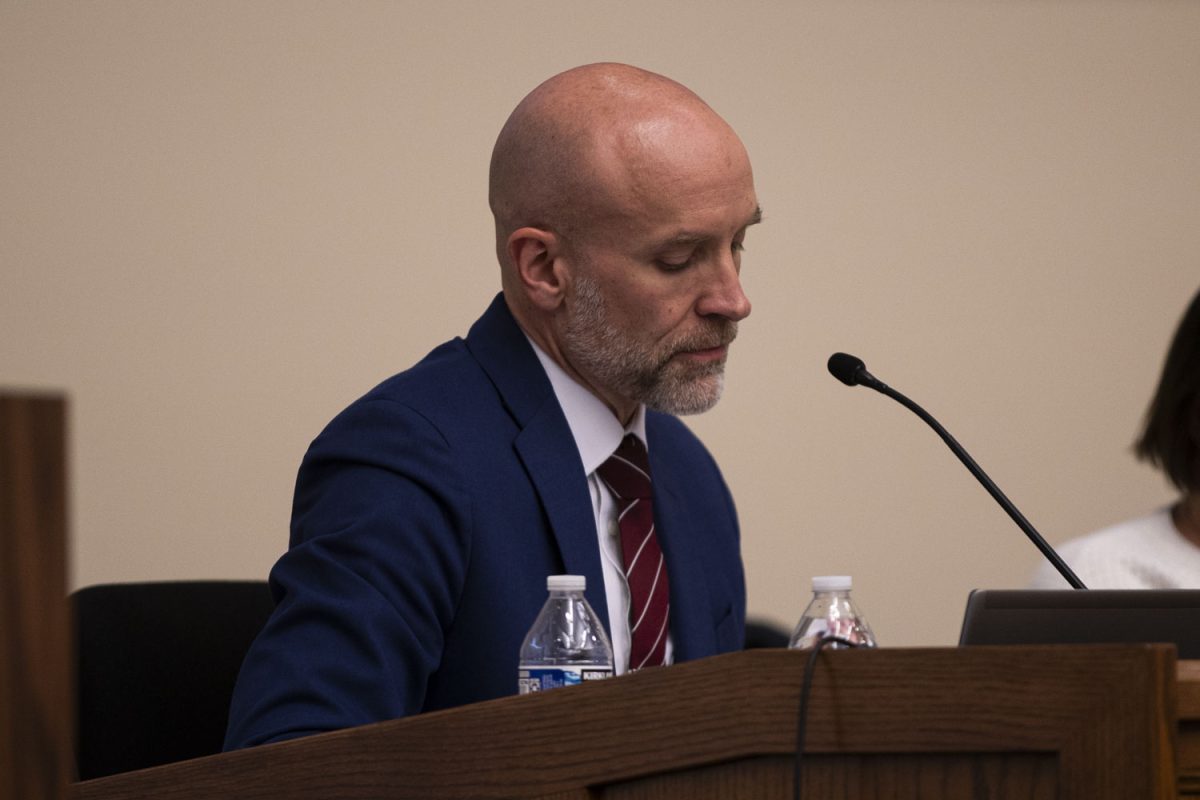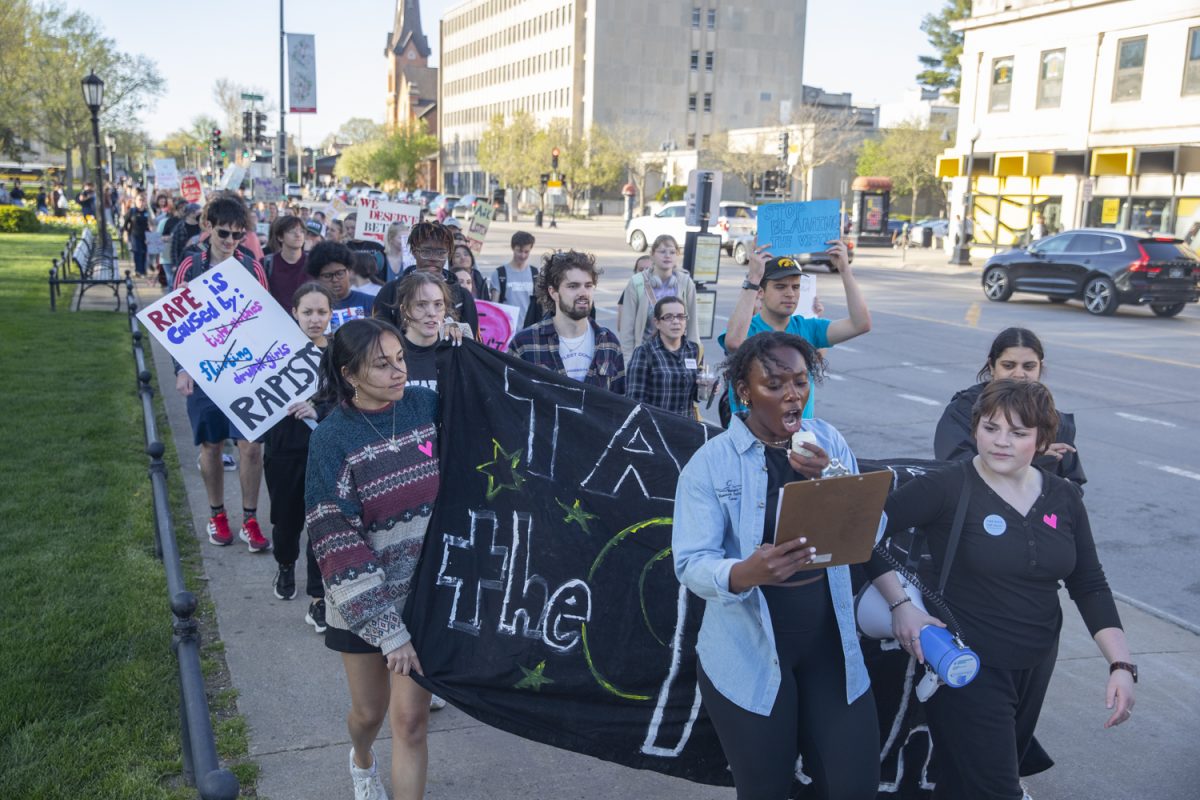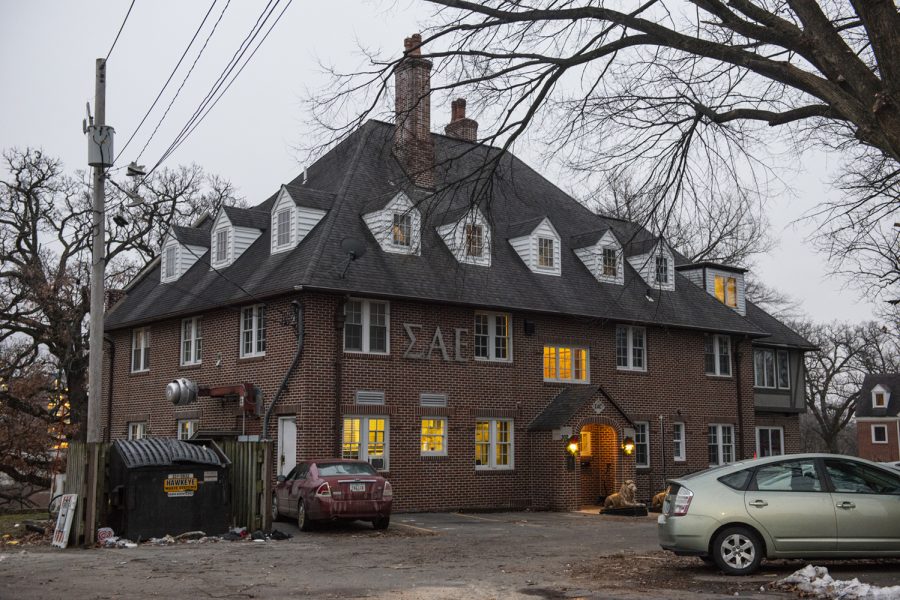In a casual question and answer session Tuesday afternoon, University of Iowa students conversed with Rep. Bruce Braley about his ideas for keeping college affordable.
Braley, a Waterloo resident who calls Brooklyn, Iowa his hometown, came to the UI to discuss issues such as extending tax credits, focusing on making governmental bodies accountable, and extending tuition dollars to provide for the best college education.
“I know that college students face a lot of challenges,” Braley said. “Not just financial challenges. And that’s why trying to provide an affordable college education is a big priority. There’s a lot of pieces to that puzzle.”
Braley endorsed the American Opportunity Tax Credit, which offers students a $4,000 deduction on their tax returns for expenses relating to tuition and books.
Although the tax credit is scheduled to expire at the end of the year, Braley introduced the legislation to extend it for another four years.
By taking that tax credit and combining it with both Stafford loans and Pell grants results in the best way for the federal government in providing higher education benefits, said UI political-science professor Timothy Hagle.
“It’s one we know that has profound impact here in Iowa,” he said.
Hagle said he thinks that not extending the tax will likely affect current students financially — whether that’s now or post-graduation.
Braley said he thinks it is important for current as well as potential students to be aware of how they can maximize their investment in education.
“One of the things that we have spent a lot of time focusing on is making sure the students who are looking at places of higher learning have more information and transparency available on things like graduation rates, placement rates, [and] defaults on student loans,” Braley said. “All this information gives students a better understanding about how those universities are using those tax dollars and providing a return on investment to those students who are attending those universities.”
Rep. Chip Baltimore, R-Boone, said that he thinks less efficient programs and actions at larger universities lead to higher costs.
“[Schools] have not been as efficient as they could be, [and have] expanded in areas that have turned out to be not as productive,” Baltimore said. “Over the course of time, ignoring the efficiencies that can be had there, have led to an increase in costs.”
Braley said also emphasized the importance of students cutting costs by finishing school in less years and the need for courses to be available for this reason.
“I think one of the things we need is some flexibility in the system so that if you’re one of those students who’s locked out, there’s an alternative way to complete that course’s requirements so it doesn’t get you off track from graduation,” he said. “With all the technology that’s available, it seems to me we could be doing a better job of keeping students on task to get the best degree possible in the shortest amount of time.”
Quentin Marquez, the vice chair of college Republicans at UI said that although he did not attend the meeting, he was not impressed by Braley’s plans.
“The educational reforms have actually been bipartisan issues,” Marquez said. “And you have many republicans standing up and voicing many of the same issues as Congressman Braley.”
Unlike Marquez, UI sophomore Saad Ansari was impressed with Braley’s answers at the event.
“Anything that can help with the financial abilities of the student will go a long way in helping them gain a higher education and having a more successful, happier life,” he said.






